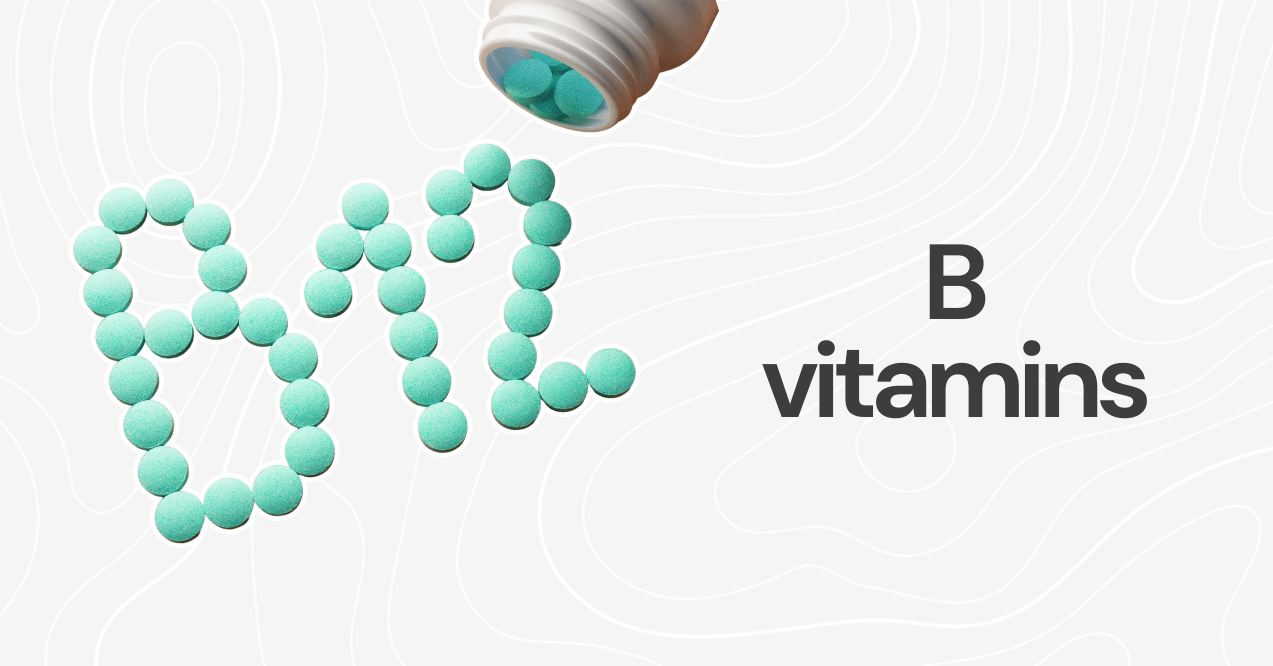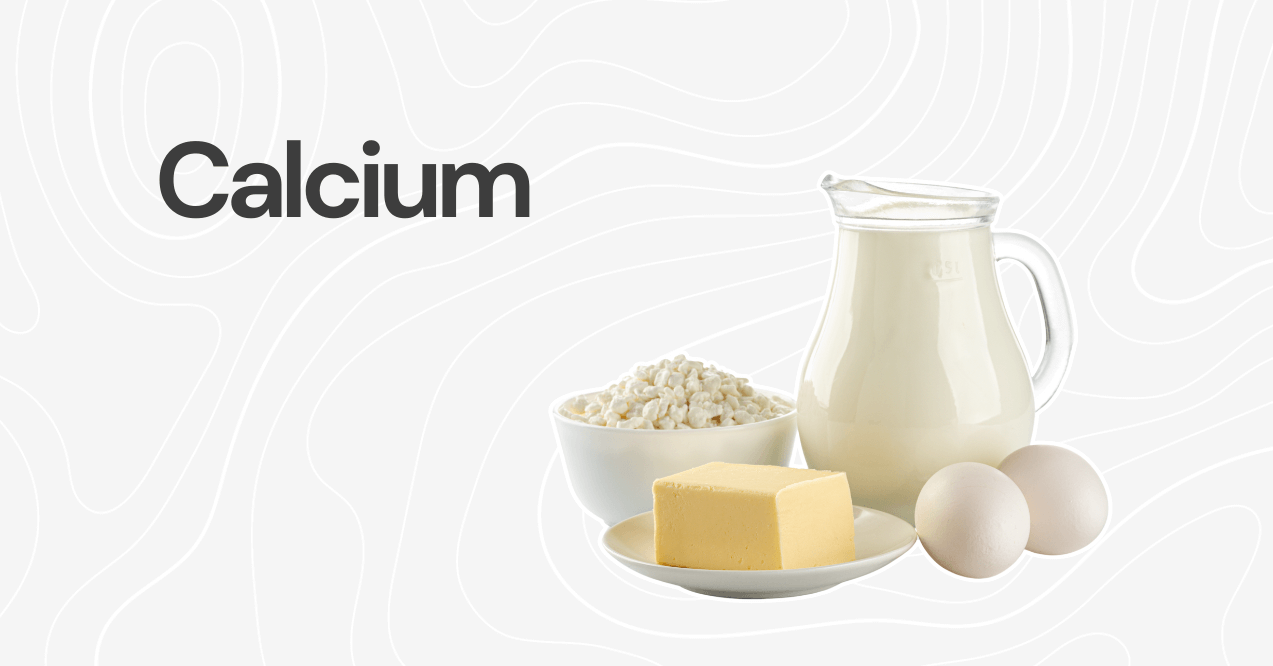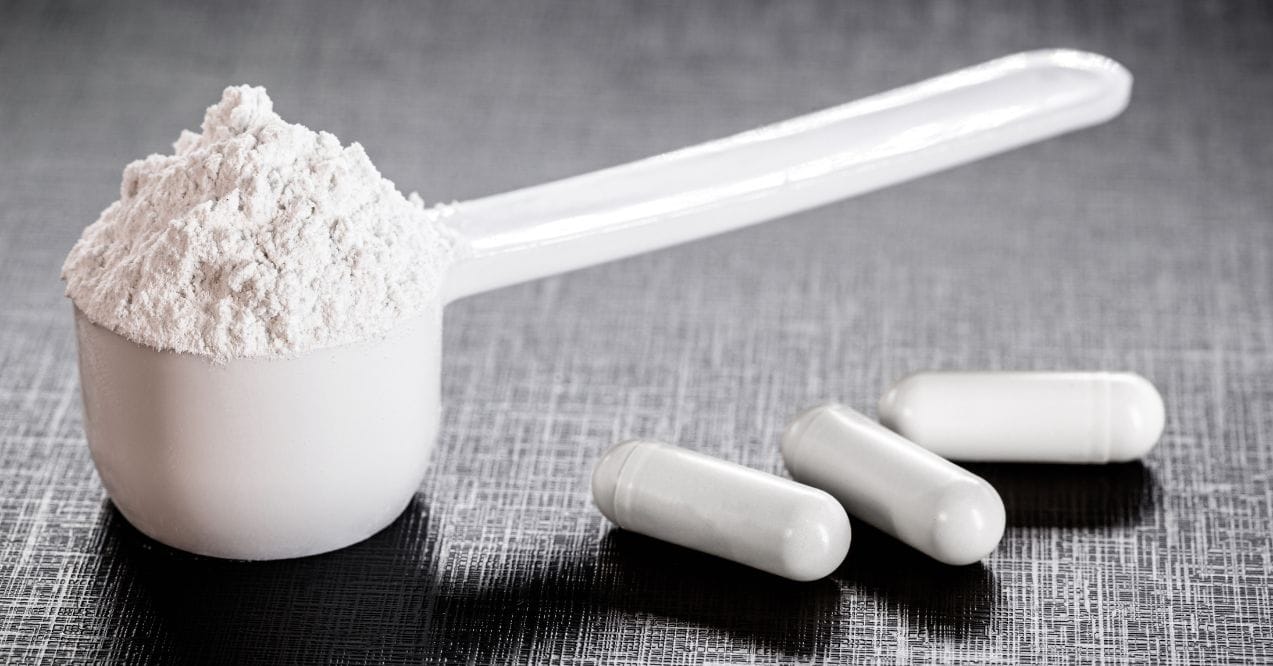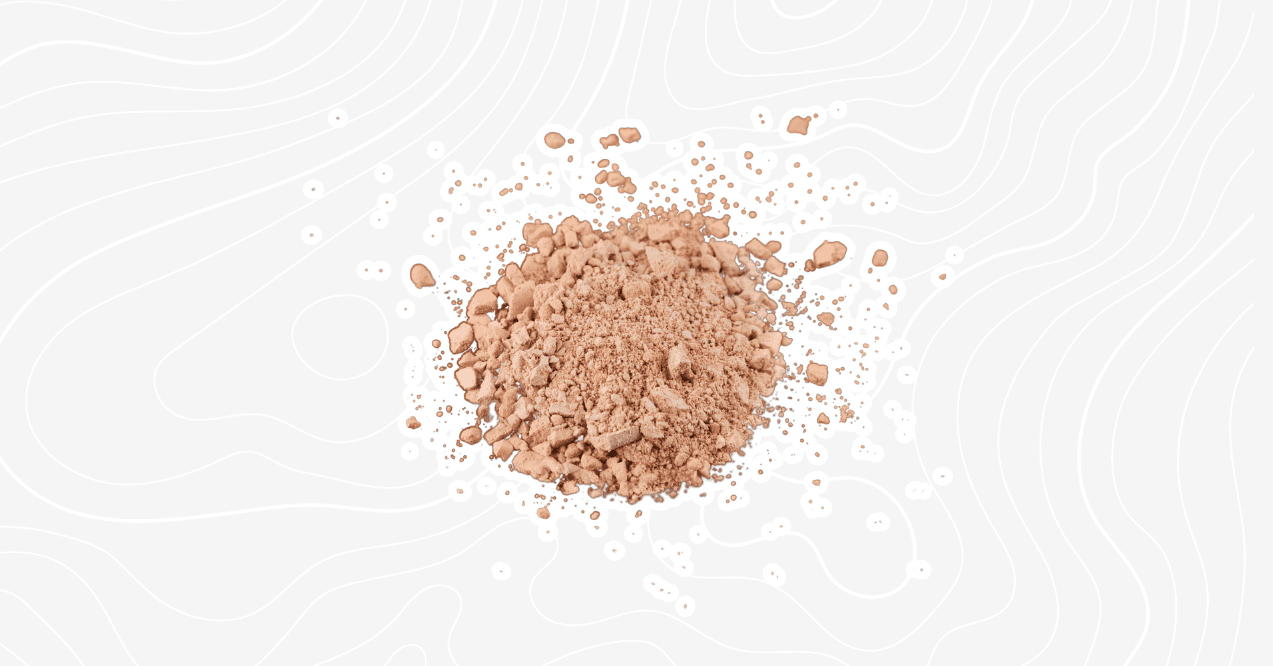5 Best Vitamins to Boost Metabolism
Searching for the vitamins to boos your metabolism? Then you are in the right place. B vitamins, magnesium, iron, vitamin D, and calcium are not just nutrients; they’re powerhouse vitamins to boost metabolism and help recognize the signs of fast metabolism. Their impact goes beyond mere energy conversion, extending into the realm of gut health, where they ensure a balanced microbiota, crucial for our body’s optimal functioning.
In our upcoming article, we’ll dive into how these vital nutrients, along with superfood powders, contribute to a robust metabolic system. By pinpointing the unique benefits of each vitamin, we aim to provide insights into how targeted nutritional choices can elevate your metabolic health, streamline your energy levels, and foster overall well-being. This exploration is about more than just metabolism; it’s about empowering you with knowledge to make informed decisions for a healthier lifestyle. If you’re also interested in enhancing your mood alongside your metabolism, check out our guide on the best mood-boosting supplements.
Key findings:
Key Drivers That Shape Your Metabolism
Various factors come into play in your body’s metabolism. They influence your body’s metabolic rates either positively or negatively. Therefore, you need to have a good understanding of these key drivers. Knowing this will aid you in making informed choices when it comes to selecting the best metabolic vitamins.
Millions of chemical reactions occur within your body to maintain life and support optimal bodily functions. Your body’s calorie burn rate can also impact how much energy it needs. Burning calories at an inadequate rate can lead to weight gain, with your body storing excess energy as fat. When it comes to controlling your body weight, always consider changing your lifestyle first. Do not blame a slow metabolism rate as the main cause of your weight gain.
The various factors that contribute significantly to body metabolism include:
- Basal Metabolic Rate (BMR) – We can describe this as the number of calories that your body needs for basic functions when at rest. Therefore, it accounts for 50–80% of your body’s metabolic energy requirements.
- Hormonal Factors – The body produces various hormones that help with your metabolic process. For example, the thyroid producing too high or too low levels can cause hormonal imbalances. These affect your body’s metabolism.
- Physical Activities – Body exercises boost your metabolism rates, unlike when you are at rest. They help alleviate excess body fat, hence keeping fit. Consuming metabolic vitamins is one of the best ways to boost physical activity. Burn out the fats for a healthy body!
- Diet – Food has a notable impact on your metabolism rate. Eating certain foods, like starch and sugars, can cause negative reactions in your body. When cycling or going to the gym, eat foods that boost metabolism to raise your energy levels significantly.
- Muscle Mass – This defines the body’s total muscular mass. The body needs energy to maintain muscle mass instead of fat mass. The more weight you have on your frame, the more energy your muscles and organs require for basic functions, leading to an increase in your metabolic activity. The best way to gain and keep muscle mass is to focus on resistance and strength-based exercises.
- Age – The metabolic rate declines as people age. A loss of muscle mass is caused by hormonal and neurological changes. An abnormally high metabolic rate can occur at certain points in a child’s development. Because of their rapid metabolism, they will likely eat more than average.

How Do Metabolism-Boosting Supplements Work Scientifically?
Many companies out there sell metabolism boosters. Thermogenesis, or increased heat generation, is the process they rely on to boost your metabolic functions. Initiating this process can heighten your calorie-burning potential by increasing energy utilization. A mix of components and vitamins to boost metabolism is what you will find in the majority of these supplements.
Scientifically, metabolic-boosting supplements promise to speed up your metabolism in your body. How they work exactly varies depending on their specific chemical composition, but they generally follow the same principles. Below is a rough, general look at how they operate:
- Providing Essential Nutrients – Metabolic supplements offer crucial nutrients to support the body’s metabolic functions by incorporating a range of nutritional components such as vitamins, caffeine, minerals, and other beneficial substances.
- Enhancing Nutrient Absorption – Metabolic-boosting supplements have enhanced properties that aid in nutrient absorption, such as vitamin D. This ensures that your body has an efficient metabolism, especially when it comes to digestion.
- Supporting Cellular Processes – For an overall efficient metabolic process, the body needs enzymes and cells to carry out their functions. Supplements with magnesium will facilitate the body’s cellular processes effectively.
- Promoting Thermogenesis – Thermogenic supplements are widely used to aid in body fat loss. A good example is green tree extracts, which boost calorie burn by promoting heat production in the body. According to research, ingesting specific thermogenic supplements produces a sustained increase in body metabolism even at rest.
Best Vitamins for Metabolism Boost
What vitamins boost metabolism? All five of these picks can help boost your metabolism if you need vitamins.
1. B Vitamins

In metabolism and energy generation, the B vitamins play a significant role. The eight individual vitamins that make up this group include:
Thiamine (B1), riboflavin (B2), niacin (B3), pantothenic acid (B5), pyridoxine (B6), biotin (B7), folate (B9), and cyanocobalamin (B12). The B vitamins are necessary because they support metabolic functions through enzymatic action and the conversion of food into energy. Below, we highlight the two most prevalent types, B12 and B6:
- The body needs vitamin B12. It maintains the nervous system, produces red blood cells, and contributes to the DNA-making process. Combined with other B vitamins, it participates in the body’s energy metabolism. In order to provide the required amount of B12 from a well-balanced diet, include large portions of meat, fish, poultry, and dairy products. For an alternative approach, a supplement would be beneficial if you are a vegetarian or cannot properly absorb vitamin B from food.
- Vitamin B6 is in over a hundred enzymatic reactions. It breaks down carbohydrates, proteins, and lipids. Moreover, it synthesizes neurotransmitters. It can be found in bananas, chicken, fish, and whole grains, which are all great sources of this vitamin.
- Recommended Intake – Adults need to consume 2.4 micrograms of B12 vitamins daily. Children should have around 1.8 micrograms. Regarding vitamin B6, both adults and children need to ingest 1.3 milligrams per day. After the age of 50, the recommended amount then switches to 1.5 milligrams for women and 1.7 milligrams for men.
2. Magnesium

Magnesium is a mineral. It helps with many key enzymatic processes needed for metabolism. It is also a crucial factor in manufacturing adenosine triphosphate (ATP), which is used for cellular energy and storage, supporting the cells’ inner workings.
- Magnesium-containing foods are nuts, legumes, and spinach. Besides these, you can also find this mineral in dark chocolate, avocados, tofu, seeds, whole grains, bananas, certain fatty fish, and leafy greens. Eating a balanced diet of these foods guarantees an adequate intake of magnesium. However, if your magnesium levels are low or something reduces absorption, then supplements may help.
- Recommended Intake – The recommended amount of this mineral varies depending on the age and sex of the individual. For example, males around 19-30 years old need to consume 400 milligrams of magnesium a day, whereas males older than 31 need 420 milligrams. Females must have 310 and 320 milligrams for these same age groups, respectively.
3. Iron

Iron is vital for making hemoglobin. Hemoglobin is in red blood cells, which helps distribute oxygen to tissues. The iron vitamins also help with energy metabolism. They are part of enzymes linked to cellular respiration.
- Some foods high in iron include lean meat, shellfish, beans, and spinach. People with iron deficiency diseases such as anemia and women who experience heavy periods will be part of those prescribed supplements.
- Recommended Intake – Men aged between 19 and 50 need to have 8 milligrams of iron daily. Women in the same age group need to consume 18 milligrams a day to remain healthy.
4. Vitamin D

Vitamin D has many roles in the body. It helps with bone strength and immunity first and foremost. It also plays a part in regulating glucose metabolism, among many other things. Needless to say, it’s a paramount vitamin for the body.
- The natural source of vitamin D is sunlight-induced synthesis in the skin. Fortified foods, such as milk and fatty fish (tuna, salmon, herring, mackerel), also serve as sources. Seafood, in general, tends to be a good source of this vitamin type. However, you can also find it in mushrooms, cheese, beef liver, yogurt, margarine, and eggs. Vitamin D supplementation is essential for those who get too little sunlight.
- Recommended Intake – Children and teens need to have at least 15 micrograms of vitamin D per day. The same holds true for adults up to the age of 70. Adults over 70 need 20 micrograms a day, whereas newborns and children no older than 12 months old need 10 micrograms.
5. Calcium

Calcium has an extended reputation in the field of bone health, but it assists in energy metabolism, too. It helps in enzyme processes that are necessary for cellular activities such as energy generation and muscle movements.
- Some good sources of calcium are green vegetables, orange juice, and dairy products. Calcium supplementation may be beneficial to people with low calcium levels and patients with any disease that interferes with element uptake.
- Recommended Intake – Women between 19 and 50 years old and men between 19 and 70 years old need at least 1,000 milligrams of calcium daily to remain healthy. As both women and men grow older, they need to raise their calcium intake to 1,300 milligrams per day.
Alternative Methods to Boost Metabolism
Now that you know which foods are a great source of these five vitamins to boost metabolism, it’s time to learn which other strategies you can employ to have a healthy metabolic function. Consider the following approaches:
- Regular Exercise – Having a well-planned training program can work wonders for your body’s metabolism. Consider incorporating cardio and weight training to increase your calorie burning.
- Adequate Sleep – Sleep quality plays a critical role in metabolic health. Lack of rest disrupts endocrine regulation, which leads to negative metabolic syndromes.
- Stress Management – Chronic stress can affect metabolism. Practicing meditation and yoga can reduce stress and improve your health and well-being. Here’s some information on how to improve mental clarity. Additionally, you can tap into the 7 best herbs for mental clarity to help you achieve a clearer mind.
Trumeta Reds and Greens for Tapping Into the Metabolic Vitamins
Looking for an easy and effective way to give your body the essential vitamins and minerals it needs to function at its best? Look no further than trumeta metabolic reds by Trumeta. This innovative and comprehensive supplement is designed to provide a powerful blend of naturally occurring vitamins, minerals, and antioxidants that work together synergistically to support healthy metabolism and raise your energy levels.

With ingredients like acai berry, cinnamon bark, and green tea extract, Metabolic Reds is a natural and safe way to stimulate thermogenesis and enhance your overall well-being and health. Not to mention, all these ingredients in this mighty metabolic supplement are responsibly sourced and 100% organic to ensure its quality. Want to leave your low-energy days in the past? Then give Trumeta Reds a try and see it rev up your metabolism to levels you previously thought impossible.
Want to feel the signs of fast metabolism? Are you ready to take your health and wellness to the next level? Visit Trumeta’s website today to learn more about these powerful and effective supplements and start experiencing the benefits for yourself!
Conclusion
Achieving an energetic and balanced metabolism requires a holistic approach that integrates proper nutrition, healthy lifestyle habits, and mindful supplementation. Vitamins like B, D, iron, magnesium, and calcium play crucial roles in energy production and metabolic regulation, while factors such as hormones, muscle mass, and physical activity further influence metabolic efficiency.
Metabolic-boosting supplements and diets, such as a fast metabolism diet, can complement these efforts by enhancing thermogenesis and providing essential nutrients. However, it’s vital to prioritize balance and consult with a healthcare provider before introducing any new vitamins or supplements, especially if medical conditions or medications are involved.
By adopting this comprehensive strategy, individuals can effectively support their metabolic health, boost energy levels, and foster overall well-being.
The vitamins that work great for metabolism are those in the B group and vitamin D, alongside minerals such as magnesium, calcium, and iron. They all facilitate energy production, enzyme activity, and cellular processes.
Vitamin D affects mood and mental health. Deficiency of this vitamin has been known to cause symptoms such as mood disorders and fatigue. Hence, maintaining a healthy level of it in our body is essential to ensure optimal mental well-being.
Yes, it can! Not getting the necessary amount of vitamins your body needs can lead to unwanted weight gain. Since your body isn’t getting the required nutrients, it can trigger excessive appetite and uncontrollable cravings in your brain, which leads to eating more and not necessarily better. At the same time, low nutrients can also result in fatigue, limiting your physical activity and increasing your weight.
Advertisement. This site offers health, wellness, fitness and nutritional information and is designed for educational purposes only. You should not rely on this information as a substitute for professional medical advice, diagnosis, or treatment. If you have any concerns or questions about your health, you should always consult with a physician or other health-care professional. Do not disregard, avoid or delay obtaining medical or health related advice from your health-care professional because of something you May have read on this site. The use of any information provided on this site is solely at your own risk.
Advertisement. This site offers health, wellness, fitness and nutritional information and is designed for educational purposes only. You should not rely on this information as a substitute for, nor does it replace, professional medical advice, diagnosis, or treatment. If you have any concerns or questions about your health, you should always consult with a physician or other health-care professional. Do not disregard, avoid or delay obtaining medical or health related advice from your health-care professional because of something you may have read on this site. The use of any information provided on this site is solely at your own risk.







